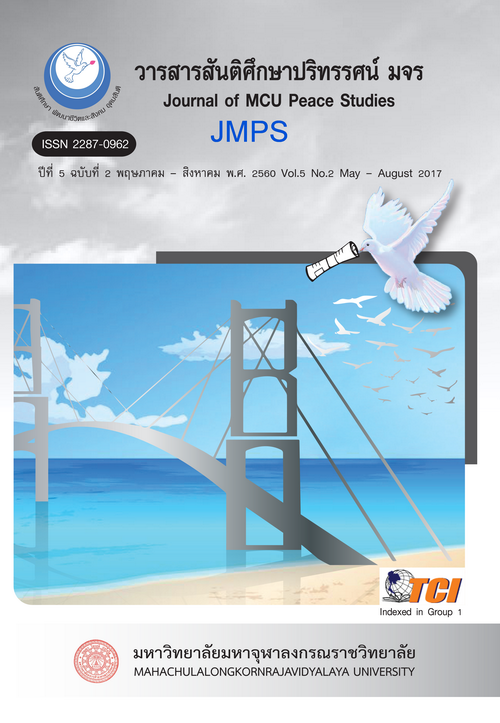Suburban community to Green Community Driven Guideline: Low Carbon Community
Main Article Content
บทคัดย่อ
This paper reports on a pilot research study of community-led action to drive the concept of a Low Carbon Society. Participatory Action Research (PAR) was used to analyze challenges and opportunities to establish a Low Carbon Community within suburban communities. The Sam Phraya Community, Phetchaburi Province was used as a case study. Using content analysis to evaluate semi-structure interview results, challenges encountered included the conflict between agriculture and urban living. Specifically, the challenges included (1) lack of knowledge and awareness relating to climate change and greenhouse gas (GHG) emissions at all levels, from farmers to local governors; and (2) lack of understanding of the meaning and implications of a Low Carbon Society within the community, compounded by policy ambiguity.
Guidelines to drive a Low Carbon Society were developed, including: (1) facilitate access to knowledge linking poverty, agriculture and low-carbon societies (LCS); (2) empower local community social structures, especially local government offices, to champion LCS; (3) support local community action to reduce GHG emissions; and (4) incentivize GHG mitigation actions at all levels. In conclusion, these processes can be driven and underpinned by establishment of a national policy to support Low Carbon Communities as part of Thailand’s national GHG mitigation strategy, contributing to agreed annual targets under Thailand’s Intended Nationally Determined Contributions (INDCs) and reporting to the UN Framework Convention on Climate Change (UNFCCC).
Article Details
ทัศนะและความคิดเห็นที่ปรากฏในบทความในวารสาร ถือเป็นความรับผิดชอบของผู้เขียนบทความนั้น และไม่ถือเป็นทัศนะและความรับผิดชอบของกองบรรณาธิการ ยินยอมว่าบทความเป็นลิขสิทธิ์ของวารสาร


